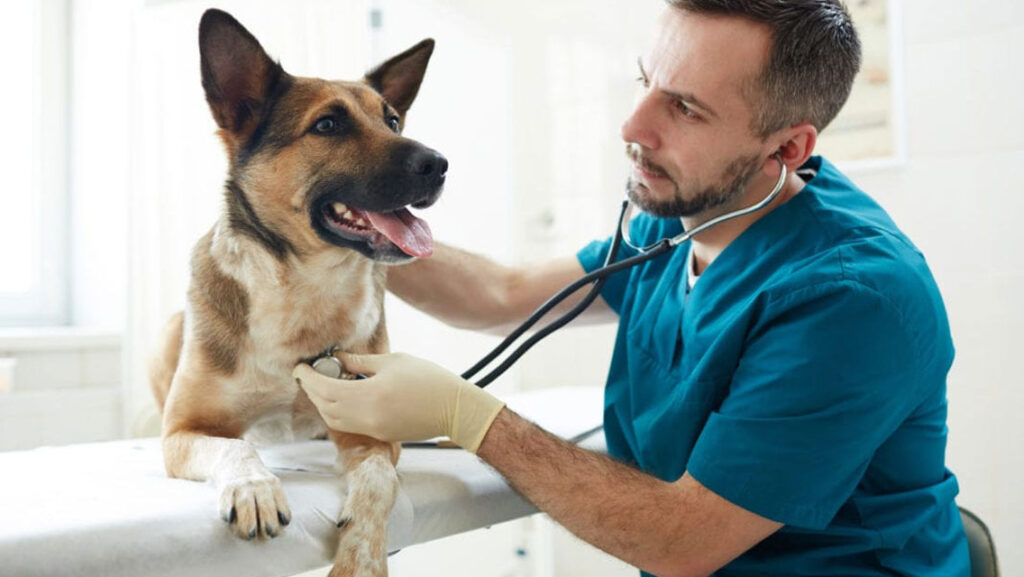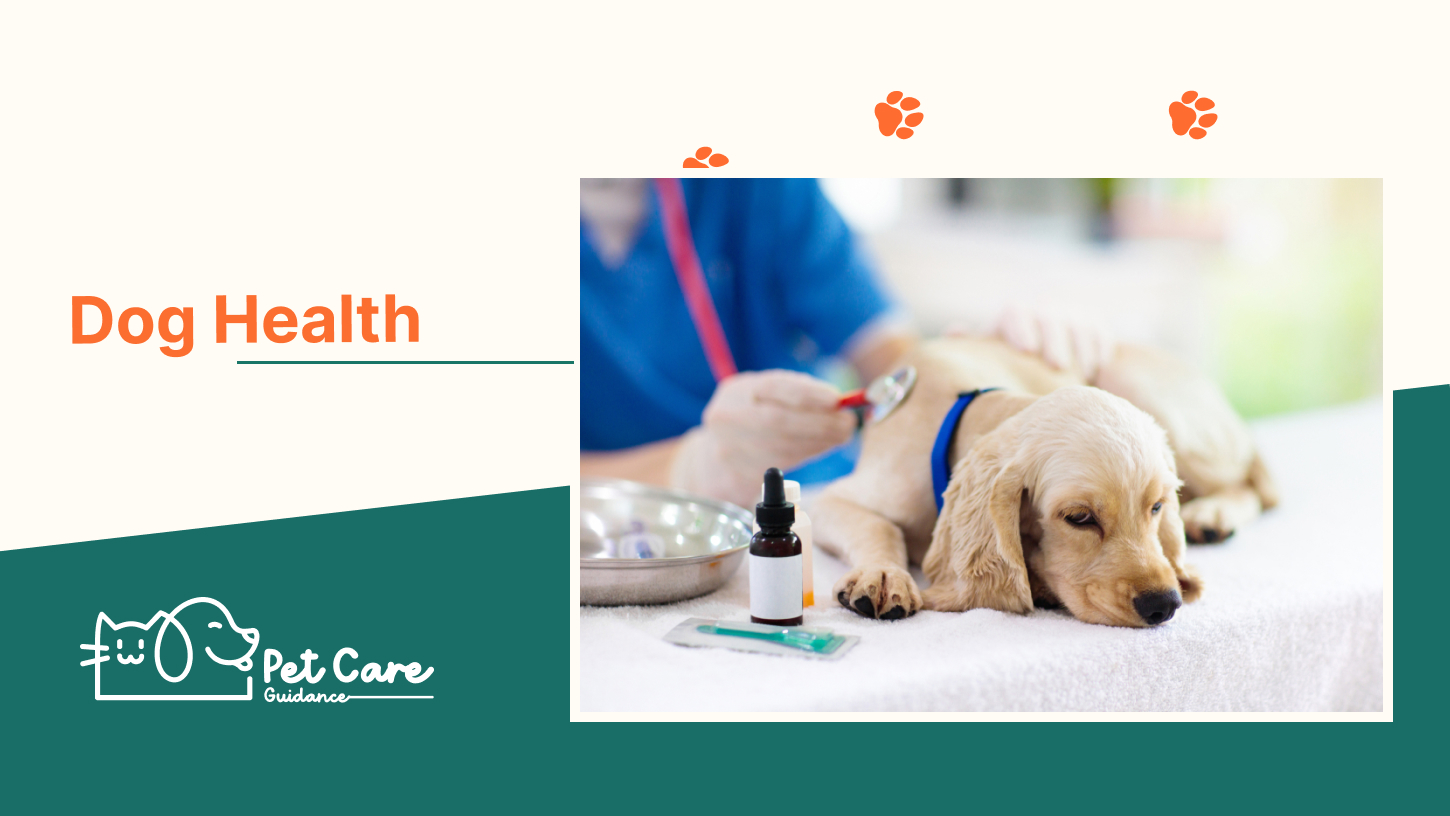Dog Health can be assessed by checking the dog’s eyes, ears, and nose for any signs of redness, irritation, or discharge. A healthy dog will have bright, clear eyes and a cool, clean, and moist nose.
Behavioural changes such as excessive thirst, decreased appetite, unexplained aggression, and trouble walking or climbing stairs may indicate a medical issue. Additionally, obesity, gum disease, and ear infections are common health problems among dogs, which can be influenced by factors like breed, age, and neutering.
Regular veterinary check-ups, a healthy diet, and plenty of exercise are essential for maintaining a dog’s overall health and well-being.
1. Understanding Common Dog Health Problems
As dog owners, it’s essential to be aware of the common health problems that our furry friends may face. By understanding these issues, we can take proactive steps to prevent and manage them, ensuring our dogs live happy, healthy lives. In this section, we will explore key health problems in dogs, emphasize the importance of regular health check-ups, and discuss tips on how to prevent and manage these common health issues.
Identifying Key Health Issues in Dogs
Dogs, just like humans, are susceptible to various health conditions. By being able to identify key health issues, we can quickly recognize when our dogs are not feeling their best. Some common health problems in dogs include:
- Obesity
- Ear infections
- Dental problems
- Arthritis
- Allergies
- Parasites
These are just a few examples of the health issues that can affect dogs. It’s important to pay attention to any changes in your dog’s behavior, such as decreased appetite, increased water intake, excessive scratching, or difficulty walking. If you notice any concerning signs, it is best to consult your veterinarian for a proper diagnosis and treatment plan.
The Importance of Regular Health Check-ups
Regular health check-ups are vital for maintaining your dog’s overall well-being. Just like humans, dogs need routine examinations to ensure any health problems are detected early on. During these check-ups, your veterinarian will conduct a thorough physical examination, assess your dog’s weight and body condition, check for signs of illness, and discuss any concerns you may have.
These routine visits also allow your veterinarian to administer necessary vaccinations, perform preventive treatments for parasites, and provide guidance on proper nutrition and exercise for your dog’s specific needs. By committing to regular health check-ups, you can minimize the risk of your dog developing serious health issues and address any concerns promptly.
How to Prevent and Manage Common Health Problems
Prevention is always better than cure when it comes to our dog’s health. Here are some tips on how to prevent and manage common health problems:
- Ensure a balanced and nutritious diet for your dog, as proper nutrition plays a crucial role in maintaining their overall health and well-being.
- Regular exercise is essential to keep your dog fit and maintain a healthy weight, reducing the risk of obesity and related health issues.
- Maintain proper dental hygiene by brushing your dog’s teeth regularly and providing dental treats or toys.
- Keep your dog’s environment clean and free of parasites by administering regular flea and tick treatments.
- Provide mental stimulation and socialization to prevent behavioral issues and promote mental well-being.
- Be proactive in monitoring your dog’s health and seek veterinary care at the first sign of any abnormal behavior or symptoms.
Remember, prevention and early intervention are key to keeping your dog healthy and happy. Consult with your veterinarian for personalized advice and recommendations based on your dog’s specific needs.
2. Recognizing Symptoms Of Dog Health Issues
As a dog owner, it is crucial to pay close attention to any changes in your furry friend’s behavior. Dogs cannot communicate their discomfort or pain in the same way humans can, so it’s essential to be observant. If you notice any unusual behaviors, such as excessive barking, aggression, lethargy, or withdrawal, it could be a sign that something is wrong with their health.
Dogs often exhibit subtle signs of distress or illness, which can be easily overlooked. However, even slight changes in behavior should be taken seriously and investigated further.
Identifying signs of illness in dogs
Recognizing the signs of illness in dogs is crucial for their well-being. Here are some common symptoms that may indicate a health issue:
- Loss of appetite
- Excessive thirst or urination
- Changes in bowel movements (diarrhea or constipation)
- Vomiting or regurgitation
- Weight loss or gain
- Coughing or sneezing
- Limping or difficulty in movement
- Noticeable changes in skin or coat
- Unusual odor
If you observe any of these symptoms persisting for more than a day or two, it is important to seek veterinary care as soon as possible.
Understanding when to seek veterinary care
Knowing when to seek veterinary care for your dog is crucial in ensuring their prompt treatment and recovery. If your dog is experiencing any of the following conditions or symptoms, it is essential to schedule an appointment with your veterinarian:
- Severe or prolonged vomiting or diarrhea
- Refusal to eat or drink for more than 24 hours
- Difficulty breathing or rapid breathing
- Visible injuries or bleeding
- Seizures or loss of consciousness
- Extreme pain or discomfort
- Unresponsiveness or disorientation
- Signs of poisoning or ingestion of a toxic substance
It’s always better to err on the side of caution when it comes to your dog’s health. Regular check-ups with your veterinarian and open communication about any concerns can help ensure the overall well-being of your beloved pet.

3. Maintaining A Healthy Diet For Dogs
Diet plays a crucial role in maintaining the overall health and well-being of our furry friends. Just like humans, dogs require a balanced and nutritious diet to thrive and stay healthy. Providing your dog with the right nutrients is not only essential for their physical health but also for their mental and emotional well-being.
Essential nutrients and balanced diets for dogs
When it comes to a healthy diet for dogs, it is important to ensure that they receive a balanced mix of essential nutrients. These include proteins, fats, carbohydrates, vitamins, and minerals. Protein is especially important for dogs as it helps in muscle development, repair, and overall growth. Good sources of protein for dogs include meat, fish, and eggs.
In addition to protein, dogs also require a healthy amount of fats in their diet. Fats provide them with energy and help in the absorption of fat-soluble vitamins. However, it is crucial to choose healthier sources of fats such as fish oil or olive oil and avoid feeding them excessive amounts of saturated fats.
Carbohydrates are another important component of a dog’s diet. They provide them with energy and fiber for proper digestion. Opt for complex carbohydrates such as brown rice or sweet potatoes rather than simple carbohydrates found in processed food.
Vitamins and minerals are vital for maintaining a strong immune system and overall health. Ensure that your dog’s diet includes a variety of fruits, vegetables, and supplements to meet their nutritional needs.
Tips for choosing the right food for your dog
Choosing the right food for your dog can sometimes be overwhelming with so many options available. Here are a few tips to help you make an informed decision:
- Consult your veterinarian: Your veterinarian can provide guidance on the specific nutritional needs of your dog based on their breed, age, size, and any underlying health conditions.
- Read the labels: Carefully read the labels on dog food packaging to ensure that it meets the nutritional requirements of your dog. Look for high-quality ingredients and avoid foods that contain artificial preservatives, colors, or fillers.
- Consider your dog’s age and activity level: Puppies and active dogs generally require more calories and nutrients compared to senior or less active dogs. Choose a food formula that is suitable for your dog’s age and lifestyle.
- Monitor your dog’s weight: Ensure that your dog maintains a healthy weight by monitoring their calorie intake and providing them with appropriate portion sizes.
- Introduce new foods gradually: When switching to a new brand or type of food, introduce it gradually by mixing it with their current food to avoid upsetting their digestive system.
Remember, a healthy diet is the foundation for a long and happy life for your beloved furry companion. By providing them with the right nutrients and a well-balanced diet, you can help prevent common health issues and support their overall well-being.
4. Regular Testing And Screening For Dog Health
Regular health testing and screening are crucial for maintaining your dog’s overall well-being. By investing in regular tests and screenings, you can detect potential health issues early on and provide timely intervention. These tests can help assess your dog’s internal and external health, identify underlying conditions, and ensure that appropriate measures are taken to prevent further complications.
Common tests and screenings for dogs
There are several common tests and screenings that veterinarians recommend for dogs. These tests vary depending on factors such as your dog’s age, breed, and medical history. Some common tests include:
- Blood tests: Blood tests can provide valuable insights into your dog’s overall health, including assessing organ function, detecting infections, and monitoring for conditions such as diabetes or thyroid disorders.
- Urinalysis: Urinalysis helps evaluate kidney function, detect urinary tract infections, and assess for the presence of abnormal substances in the urine.
- Heartworm testing: Regular heartworm testing is crucial for dogs, as heartworm disease can be fatal if left untreated. This test helps identify the presence of heartworm larvae in your dog’s bloodstream.
- Fecal testing: Fecal testing helps detect the presence of parasites such as worms or giardia in your dog’s gastrointestinal tract.
- X-rays or imaging: X-rays and imaging techniques can provide insights into your dog’s skeletal structure, identify fractures or abnormalities, and help diagnose conditions such as arthritis or organ enlargement.
Understanding the results and implications
Once the tests and screenings are completed, it’s essential to understand the results and their implications for your dog’s health. Your veterinarian will explain the findings and their potential significance. They may recommend further tests or treatments based on the results.
As a responsible dog owner, it’s crucial to follow your veterinarian’s guidance regarding any necessary treatments, medications, or lifestyle adjustments. Regular testing and screening, combined with appropriate care, can help ensure your dog’s health and well-being for years to come.
Investing time and effort in regular health tests and screenings is a proactive approach to canine health care. By staying on top of your dog’s health, you can identify and address potential issues promptly, increasing the chances of successful treatment and ultimately improving your furry friend’s quality of life.
5. Dental Care For Dogs
Ensuring good oral hygiene is essential for maintaining overall health in dogs. Dental care plays a significant role in their well-being and can prevent various health issues. In this section, we will discuss the importance of dental health in dogs, tips for maintaining good oral hygiene, and common dental problems along with their prevention.
The significance of dental health in dogs
Dental health is not only about fresh breath; it directly impacts a dog’s overall well-being. Neglecting dental care can lead to various problems such as tooth decay, gum disease, and even systemic diseases involving the heart, liver, and kidneys. Poor dental health can cause pain, difficulty in eating, and decrease the dog’s quality of life. Therefore, regular dental care is crucial for their overall health and happiness.
Tips for maintaining good oral hygiene in dogs
- Brush your dog’s teeth regularly using a toothbrush and toothpaste specifically designed for dogs. Start slow and gradually increase the frequency and duration of brushing sessions to make it a positive experience for both you and your furry friend.
- Provide appropriate chew toys and dental treats that help clean the teeth and massage the gums. Look for products approved by veterinary dental associations.
- Include dental-friendly food and treats in your dog’s diet. Certain diets and treats are formulated to promote dental health by reducing tartar and plaque buildup.
- Schedule regular professional dental cleanings with your veterinarian. These cleanings involve a thorough examination, scaling, and polishing of the teeth, and can help prevent and treat dental problems.
- Monitor your dog’s oral health regularly for any signs of dental issues such as bad breath, swollen gums, discolored teeth, or difficulty in eating. Early detection and prompt treatment are essential to prevent further complications.
Common dental problems and their prevention
Some common dental problems in dogs include:
| Dental Problem | Prevention |
|---|---|
| Tooth decay | Regular brushing, appropriate dental chew toys, and a balanced diet. |
| Gum disease | Regular brushing, professional dental cleanings, and dental-friendly diet and treats. |
| Periodontal disease | Regular dental check-ups, professional cleanings, and proper oral hygiene practices at home. |
| Bad breath | Regular brushing, professional cleanings, and dental-friendly products. |
By following these preventive measures and maintaining good oral hygiene, you can help keep your dog’s teeth and gums healthy, ensuring their overall well-being.

6. Overall Wellness And Disease Prevention In Dogs
When it comes to overall wellness and disease prevention in dogs, vaccinations and preventive measures play a crucial role. Vaccinations are essential for protecting dogs against various diseases and infections. Your veterinarian will recommend a vaccination schedule to ensure that your dog is up to date on all necessary shots.
Some common vaccines for dogs include:
- Rabies
- Distemper
- Parvovirus
- Hepatitis
- Leptospirosis
Regular vaccinations can help prevent your dog from contracting these diseases and can save their life. Additionally, it is important to keep up with preventive measures such as flea and tick prevention, heartworm medication, and regular deworming to protect your dog from parasites.
Exercise and mental stimulation for overall dog health
Just like humans, dogs need regular exercise and mental stimulation to maintain their overall health and well-being. Regular exercise helps to keep dogs physically fit, maintain a healthy weight, and prevent obesity-related health issues. It also provides an outlet for their energy and helps to keep them mentally stimulated.
Some ways to ensure your dog gets enough exercise and mental stimulation include:
- Take daily walks or runs with your dog
- Engage in interactive play sessions
- Provide puzzle toys and treat-dispensing toys to keep their mind active
- Consider participating in dog sports or training classes
By incorporating regular exercise and mental stimulation into your dog’s routine, you can help them lead a happy and healthy life.
Tips for providing a safe and healthy environment for your dog
Creating a safe and healthy environment for your dog is essential for their overall wellness and disease prevention. Here are some tips to consider:
- Provide a nutritious and balanced diet: Feed your dog high-quality dog food that meets their nutritional needs. Consult with your veterinarian to determine the best diet for your dog’s specific needs.
- Keep vaccinations and preventive treatments up to date: Regularly visit your veterinarian to ensure your dog is current on vaccinations and preventive measures, such as flea and tick control and heartworm medication.
- Keep your dog’s living area clean: Regularly clean your dog’s bedding, toys, and living space to prevent the buildup of bacteria and parasites.
- Create a safe outdoor space: If your dog spends time outdoors, ensure they are in a secure and fenced-in area to prevent accidents or potential escape.
- Regular grooming: Keep your dog’s coat clean and well-groomed to prevent skin issues and matting. Regularly check and clean their ears and trim their nails.
- Regular veterinary check-ups: Schedule regular wellness check-ups with your veterinarian to detect any potential health issues early on and ensure your dog’s overall well-being.
By following these tips, you can provide a safe and healthy environment for your dog, promoting their overall wellness and disease prevention.
Frequently Asked Questions Of Dog Health
What Is The #1 Health Problem Among Dogs?
The #1 health problem among dogs is obesity. Not all obese dogs are overeating; genetics, hormonal imbalances, and lifestyle can also contribute. It’s crucial to consult a vet for a healthy diet and ensure your dog gets enough exercise. (47 words)
What Are The Symptoms Of A Sick Dog?
Symptoms of a sick dog include decreased appetite and weight loss, bad breath or foul odor, excessive thirst or urination, behavioral changes, difficulty walking or climbing stairs, and problems with urination or bowel movements. Common health problems for dogs are gum disease, ear infections, and obesity.
What Is A Common Health Problem For Dogs?
A common health problem for dogs is obesity, which can be caused by various factors. Genetic conditions, hormonal imbalances, and lifestyle choices can all contribute to a dog’s weight issues. To ensure your pet’s health, consult with a veterinarian about a proper diet and exercise routine.
How Can I Tell If My Dog Is Healthy?
To determine if your dog is healthy, check their eyes, nose, and ears for any redness or discharge. A bright and clear appearance is a good sign. Also, pay attention to changes in behavior like scooting, shaking, or excessive water intake, as these could indicate a medical issue.
Make sure to consult with a vet if you notice anything concerning.
Conclusion
Maintaining the health of your dog is crucial for their overall well-being. Regularly checking their eyes, ears, and nose can help identify any potential health issues. Paying attention to changes in behavior and consulting with a vet is essential in detecting symptoms of illness.
Obesity is a prevalent health problem in dogs, and proper diet and exercise are vital in preventing it. By prioritizing your dog’s health, you can ensure a happy and active life for your furry companion. Remember to consult with a veterinarian for personalized advice and care.


